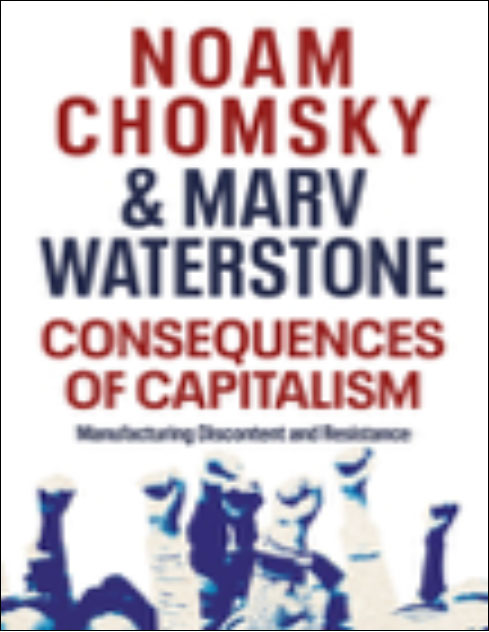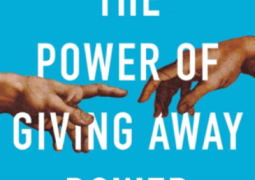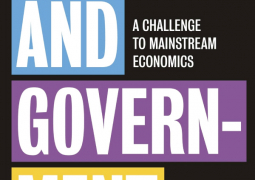
Given the current economic, political and all around completely messed up climate and world we’re all living in, the new book from Noam Chomsky and Marv Waterstone perhaps couldn’t be more timely. Based on the popular undergraduate series of lectures titled “What Is Politics?”, ‘Consequences of Capitalism: Manufacturing Discontent and Discourse’, offers an essential reflection, particularly for those new to following and wanting to understand more about the world in general, particularly from a political aspect, on how politics and capitalism have over the years, created the chaotic world we know today, and takes a look at how things can, should and need to change if our society is to be at all stabilised and sustained.
We all know that what we see, feel, hear and react to every day is dependent on the actions and comments of other people – without that interaction, need it be in person, through social media or outlets such as TV or radio, our lives would be very, very different. But what most people don’t realise, as Noam and Marv point out, is that a lot of such interaction – what is seen, said, heard, printed and shared, often comes from a political and capitalist based starting point and that we all make up our own minds – or think that we do – as to whether we agree with, believe and/or follow such viewpoints.
Noam and Marv make a very strong case for looking at how much of what we believe to be our own common sense and ideals/beliefs actually come from the ruling classes – government and upper-class organisations and individuals – and what they want others to believe and to do. The truth is, as so many of us are now acutely aware, that ignoring those of higher class, status and stature and their rhetoric they promote in various forms, is almost impossible to do in this day and age thanks to the likes of social media. One of the key points raised in ‘Consequences of Capitalism’ is how we can challenge the structures and people that, through legislation or other means, pose a very real threat to this planet and everyone living on and in it.
One answer comes in the form of how so many capitalist groups and individuals get their message out to us; online interaction. Platforms such as Twitter provide us all with a way to argue against such people and what they believe to be the right thing – for themselves, and for others; even for the world. We can, even if only in a small way, by sharing our views and opinions, signing petitions and taking part in protests and peaceful marches etc, challenge the capitalist structures that seemingly dictate so much of all our lives, but as Noam and Marv say more than once throughout the pages, that is nowhere near enough, and systematic change is needed – not in years to come, but in reality, right now. Much more needs to be done if the world we know today is indeed at all to recover from the chaos of recent events and the past years/decades.
Still need convincing? In closing, ‘Consequences of Capitalism’ look at the ongoing Covid-19 pandemic, which at the time of the books’ writing was just starting to take a deadly hold of the world. Governments around the world have issued different sets of advice and brought in various pieces of law and legislation to try and get a handle on the crisis. Over the past year, it has become glaringly obvious – sadly at the loss of thousands upon thousands of lives – that the political and capitalist viewpoints of those in power have, for the most part at least, benefited and been for no one but themselves. So many people in positions of power have done and continue to do what THEY want to do, seemingly regardless of the consequences, and have done and do so because they can – there is no one, or not enough power in and from the masses – to stop them.
Soon to be former President Trump has repeatedly objected to and gone against the professional medical advice of Dr Anthony S. Fauci, the director of the National Institute of Allergy and Infectious Diseases. Having first told people to stay home and close their workplaces etc, several senators and town governors across the country quickly backtracked and encouraged and allowed businesses to open up again because they wanted to get the economy going again – and all the while several thousand people were dying just miles away and elsewhere because of such actions, and sadly continue to do so.
On the other side of the Atlantic, at one point last year, the UK had the highest death toll from the virus in Europe. As Christmas approached, Prime Minister Boris Johnson ignored calls for a second nationwide lockdown of the UK for weeks and instead broadcast an announcement saying up to three families could mix for 5 days over the festive period. The result of this is that the NHS is currently close to being utterly overwhelmed, with more than a million confirmed cases as of last week, at which point he finally put the country back into the much needed, but, it is widely agreed, much too late lockdown. On the flipside, Prime Minister Jacinda Ardern of New Zealand followed the advice given to her by medical experts and thought first and foremost about the health and wellbeing of her people. The result? At the time of my writing this, the country has had 4 new cases in 48 hours and their death toll since this pandemic first started stands at 25. Of all the countries affected by this virus, they’re one of the few that can see the light at the end of the very long, dark and deadly tunnel.
Those in positions of power, particularly political power, it can be argued, as many have known and spoken out about for some time now, have far too much of it, with many using that power for the wrong reasons and in the wrong way – for their own gain rather than that of the people they are or were chosen/voted for to look out for and whose lives their actions and positions should ultimately benefit. Of all events in recent years, it is the Covid-19 pandemic that has ultimately highlighted so many glaring failures by and from those in power – and the political and capitalist viewpoints they have and share with the masses. While the battle for controlling the narrative surrounding the pandemic goes on, as it likely will for a while – even with vaccines now in circulation – the outcome of such battles will ultimately depend on widespread calls for reform. That reform can and will only come from us – the public – being able and willing to ignore the words and actions of those who ultimately risk doing us all, society and the world as a whole more harm than good and stand up, speak out and fight for a better, safer and more equal world for everyone. As Noam and Marv write in the afterword: ‘everything depends on the actions that people take into their own hands.’
Consequences of Capitalism: Manufacturing Discontent and Discourse’ is available at TIMBOOKTOO THE BOOKSHOP TEL:4494345




